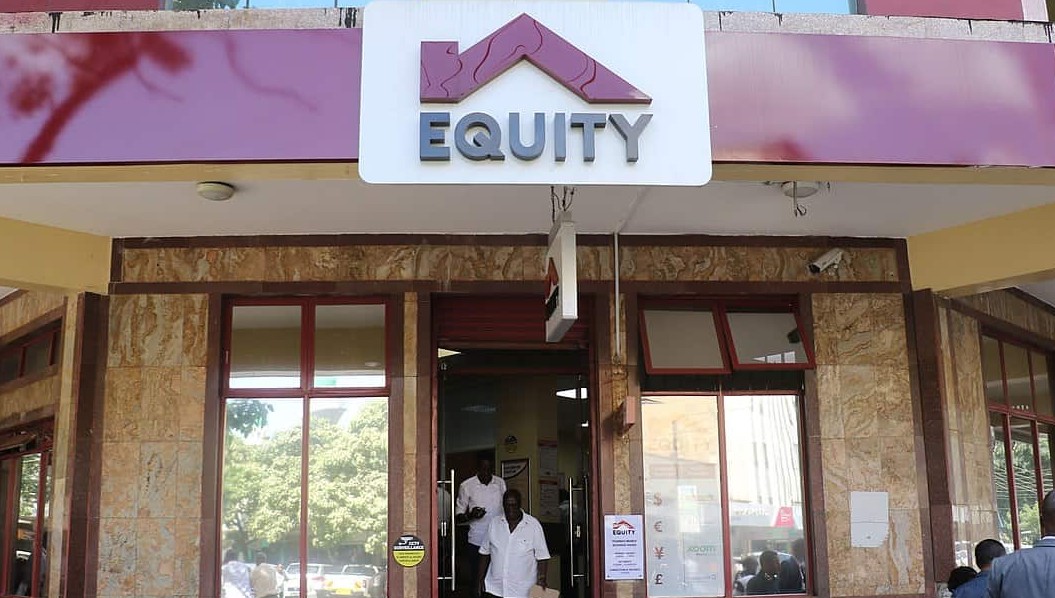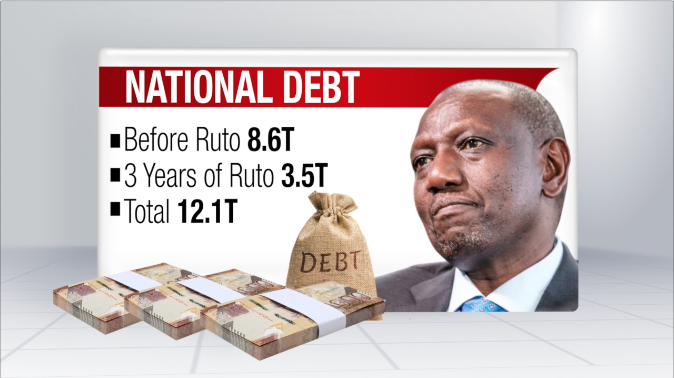
One of Equity Bank’s branches. Photo/Capital Digital
By Newsflash Team
Equity Group’s use of land and property as collateral for loans has for the first time surpassed the Sh1 trillion mark, highlighting the growing dominance of real estate in Kenya’s credit system.
The lender revealed that title deeds, logbooks, trademarks, and patents are now the main forms of collateral in a banking industry where borrowers without assets struggle to access loans.
NCBA Group holds Sh334 billion in land and property collateral—67 percent of its Sh498 billion security portfolio—while Co-operative Bank reported Sh317 billion in property-backed securities, representing 48 percent of its Sh654 billion collateral base.
Together, the three lenders account for a combined Sh1.75 trillion in property as loan security, a clear indicator of banks’ preference for land due to its stability and ease of seizure in the event of defaults.
Besides real estate, vehicle logbooks and company shares remain key items under auction for loan recovery. Kenya’s weakening economy has increased repossessions as lenders ramp up efforts to recover non-performing loans. Co-operative Bank disclosed Sh66 billion in loans secured by vehicles, while NCBA’s figure stood at Sh56 billion. This shift towards asset-backed lending has also coincided with the rise of tech-based loan providers offering unsecured credit, often at high interest rates, to both the banked and unbanked.
Gender disparity
Analysts say banks have leaned heavily on physical assets amid a rise in loan defaults. “Banks favour land because it appreciates and cannot be moved like other assets,” said Ken Gichinga, chief economist at Mentoria Economics.
He said the system lacks innovation in developing alternative forms of collateral, which locks out many startups and innovators. Gichinga also flagged gender inequality in asset ownership, noting that men disproportionately control land, leaving women financially excluded.
Data from previous land registration efforts showed that less than 2 percent of title deeds issued in Kenya since 2013 went to women, despite constitutional reforms promoting equal property rights. Campaigners say boosting women’s land ownership would lower poverty, reduce domestic violence, and increase their ability to access credit and secure their livelihoods.
Read more: Equity Bank dominates 2025 Awards, Mwangi named CEO
Meanwhile, fintech lenders—many backed by U.S. investors—are transforming access to credit by serving low-income populations and those without formal banking relationships. These digital credit providers are expanding across Africa, Latin America, and Asia, seeking to reach borrowers who lack land, formal employment, or bank accounts. Regional institutions such as the African Guarantee Fund and Africa Trade Insurance are also supporting credit for borrowers who have stable income but lack traditional collateral.
The value of collateral is discounted differently depending on the asset class. Land, depending on its location, typically covers up to 70 percent of a loan in forced sale scenarios. Car logbooks are similarly discounted at 70 percent, while stock market shares cover around 50 percent. Common household items like televisions, refrigerators, and sofas are accepted for short-term loans. The Business Registration Service reported that since July 2021, over 291,000 household items have been used to back loans.
Read more: How waste and poor planning are suffocating Nairobi’s estates
KCB Group, the country’s biggest lender by capital base, reported a total security portfolio worth Sh2.5 trillion—more than double its loan book of Sh1.07 trillion by the close of 2024. However, it did not break down the asset types held. Equity Bank reported that land and property made up 82 percent of its Sh1.4 trillion collateral portfolios.
Other assets included Sh250 billion in car logbooks, household items, and savings, and Sh226 million in company shares.
This overwhelming reliance on physical assets for loan security reflects banks’ reluctance to embrace intangible assets such as cash flows, customer contracts, or intellectual property. The approach continues to exclude a significant section of the economy from accessing credit, especially those without asset ownership.




1 thought on “Equity’s land-backed loans cross Sh1.1 trillion mark”
Comments are closed.